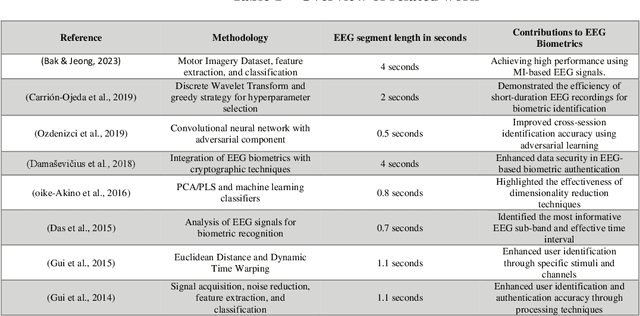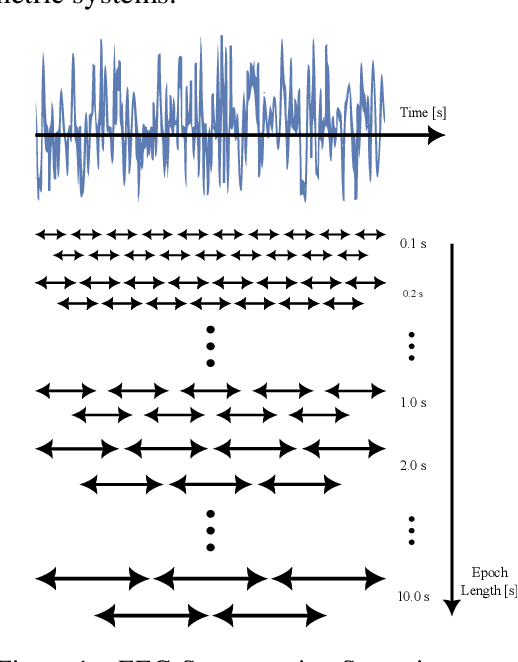When Does Your Brain Know You? Segment Length and Its Impact on EEG-based Biometric Authentication Accuracy
Paper and Code
Mar 19, 2024



In the quest for optimal EEG-based biometric authentication, this study investigates the pivotal balance for accurate identification without sacrificing performance or adding unnecessary computational complexity. Through a methodical exploration of segment durations, and employing a variety of sophisticated machine learning models, the research seeks to pinpoint a threshold where EEG data provides maximum informational yield for authentication purposes. The findings are set to advance the field of non-invasive biometric technologies, proposing a practical approach to secure and user-friendly identity verification systems while also raising considerations for the real-world application of EEG-based biometric authentication beyond controlled environments.
 Add to Chrome
Add to Chrome Add to Firefox
Add to Firefox Add to Edge
Add to Edge